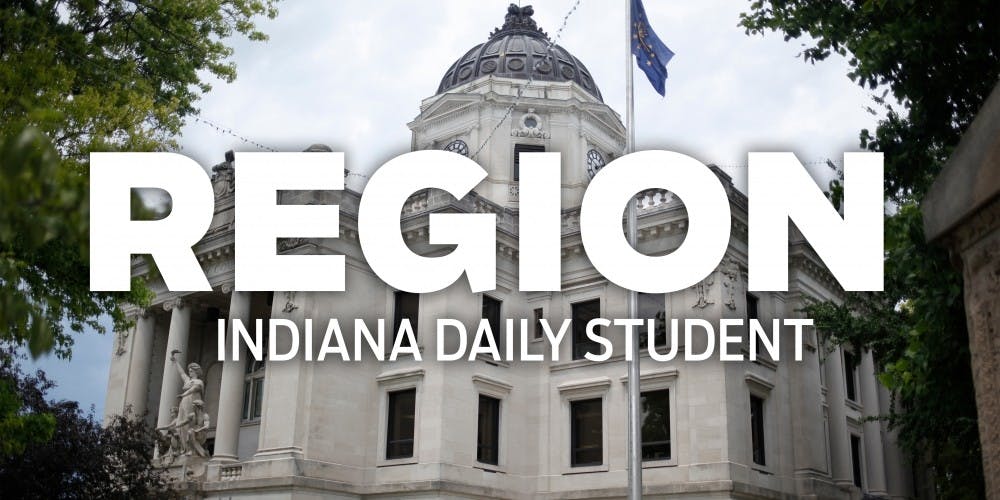The Indiana General Assembly officially kicked off its 2018 legislative session Wednesday, a session expected to be short and to focus more on social issues.
Despite the lack of a common goals between parties, legislators have already begun introducing hundreds of bills on topics ranging from legalizing a cannabis extract to establishing an independent redistricting commission in Indiana.
This session is a short one, only lasting ten weeks from January to March. Because it is short, legislators will not be tasked with crafting the two-year state budget.
“In many ways the coming session seems to lack the spark that many others have had in recent times,” said Senate President Pro Tempore David Long, R-Fort Wayne, at the Nov. 21 Organization Day. “There’s not one shiny object that we’re after here.”
House Minority Leader Terry Goodin, D-Austin, said at Wednesday’s first session that he doesn't plan to just sit around.
“This is a short session, but I see no need to mark time until March 15,” Goodin said. “There are issues that must be resolved.”
CBD oil
Sen. James Tomes, R-Wadesville, filed Senate Bill 214 last Wednesday that would hopefully clear up confusion over the legalization of cannabidiol, known as CBD. CBD is a cannabis extract that does not get users high due to its low levels of THC.
The bill would redefine CBD oil, legalize its use and repeal previous provisions dealing with cannabidiol registration.
Confusion arose during the 2017 session after Gov. Eric Holcomb signed a bill into law allowing people diagnosed with certain medical conditions, specifically epilepsy, to use CBD oil. Cannabidiol as defined in the bill can contain “no more than .3 percent of THC and at least 10 percent cannabidiol.”
This law, however, caused confusion over whether the product was legal to sell in stores. Attorney General Curtis Hill announced in a Nov. 21 advisory opinion the product was illegal in almost all circumstances.
Hill wrote products for human consumption that contain CBD are unlawful in Indiana and under federal law.
A week later, Holcomb gave Indiana Excise Police 60 days “to educate, inform and issue warnings to retailers” and give them enough time to remove products containing CBD oil.
Tomes’ bill would fully legalize CBD oil, as defined in the bill as containing no more than .3 percent of THC, at least 5 percent of cannabidiol and no other controlled substances.
Alcohol sales
With Senate Bill 1, authored by Sen. Ron Alting, R-Lafayette, Indiana residents may finally be able to purchase carryout alcohol on Sundays.
The bill would allow liquor stores, grocery stores, convenience stores or drug stores and certain restaurants to sell alcoholic beverages for carryout from noon to 8 p.m. Sundays.
In November, the Alcohol Code Revision Commission voted to recommend allowing carryout alcohol sales on Sundays, according to an Indianapolis Star article. This recommendation signaled a step closer toward repealing the post-Prohibition laws.
The commission endorsed Sunday carryout laws but did nothing to expand cold beer sales to grocery and convenience stores, for which there generally are more controversy. The issues of both Sunday carryout laws and expanding cold beer sales are likely to be debated during the course of the session.
Redistricting
Democrats will work to push redistricting reform this session. House Minority Leader Terry Goodin, D-Austin, said at Wednesday’s session that he will push to fix Indiana’s “hugely flawed” election system.
“As I have said before, we have turned into a state where the lawmakers select their constituents rather than the other way around,” Goodin said.
He said he will fight to establish an independent redistricting commission to create more fair elections.
Senate Minority Leader Timothy Lanane, D-Anderson, filed Senate Bill 77 that would establish this redistricting commission to recommend plans for redrawing the general assembly districts and congressional districts.
At the Nov. 21 Senate Organization Day, Lanane said there is a grassroots effort for redistricting where many people who are ready to get rid of gerrymandering.
“They think it’s wrong,” he added. “They think it hurts the integrity of the system.”
Opioid epidemic
Another focus for the session will be the opioid epidemic.
Gov. Holcomb made it a point on his 2018 agenda to attack the drug epidemic. His goals include establishing a felony charge for drug-induced homicide and a felony murder charge for those who manufacture drugs, improving the state’s reporting of drug overdose deaths and increasing drug treatment options.
Long urged senators at Organization Day to work together to solve this continuing problem. As the state government, he said they have a responsibility to do what they can to help fix it.
“This is an unprecedented problem and we have to deal with it,” Long said.
Long said he wants to see more education, more recovery programs, better oversight on prescription drugs and more law enforcement focusing on drug dealers.
“We have to be all in on this as a society,” Long said.
Many Democrats agree something needs to be done to solve the problem.
Lanane said at Organization Day that there needs to be an understanding that the solution is not locking everybody up. Addiction is an illness, and the epidemic is a health care problem.
“Treatment is the answer to the users out there,” Lanane said.
Goodin said at Wednesday’s first session that there needs to be an expansion of mental health services to try to combat the epidemic.
“For those who have seen their communities destroyed by drugs, a battle I have witnessed firsthand," Goodin said. "I will say we will do everything in our power to make sure officials have the tools they need to fight this disaster."



